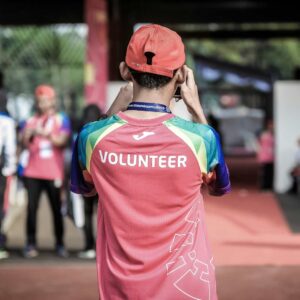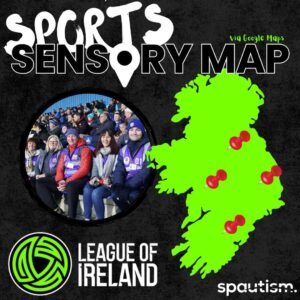Colin Power: Learning and adapting
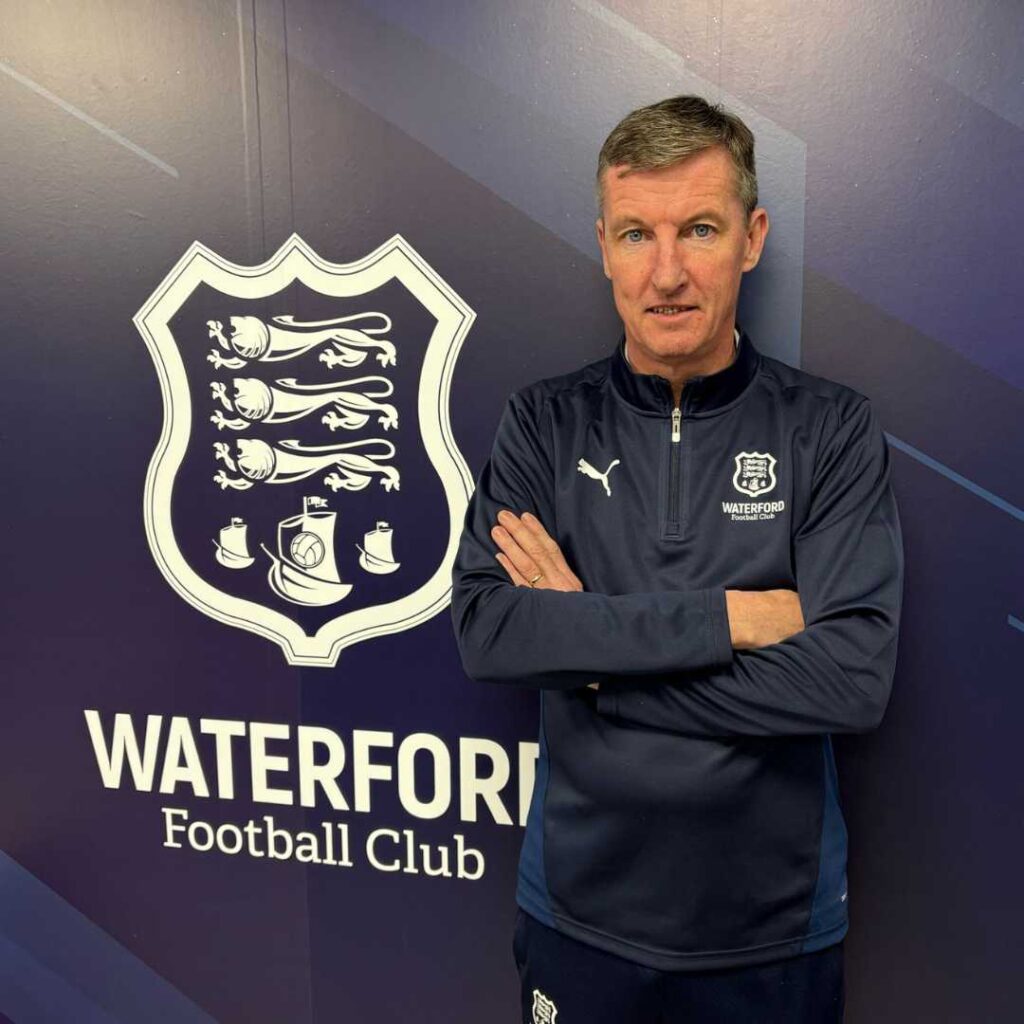
Waterford Football Club compete in the League of Ireland Premier Division, and have a long and proud history having been founded 95 years ago.
Arguably the club’s golden years came in the 1960s and 70s when they won all six of their League of Ireland titles and played against the likes of Manchester United, Galatasaray, and Celtic in the European Cup – now known as the UEFA Champions League.
Colin Power was born in this glory era and later became a huge fan of Waterford. In 2019, he joined the club’s volunteer workforce to support their community initiatives, before becoming its first full-time Head of Community four years later.
In just 18 months, Colin helped return Waterford to the continental stage – but not through performances on the pitch. The work that has been done by him, the club, and the dedicated volunteers to make matchnights more enjoyable for autistic people earned second-place in the 2024 European Football Development Network (EFDN) More than Football Awards.
“For me, matchdays were always about the result. If we won, great; if we lost, disaster,” reflected Colin. “Matchday now is about all the things we have going on – the autism-friendly match experience and lots of other elements that I’m responsible for.
“I don’t see a lot of the match anymore because I go round making sure everything is ok and being done. It’s totally different to what it was, and I wouldn’t change it.
“We are focused on kids on the autism spectrum who can’t go through the typical matchday routines. We have a lot of supporters with autism who can, but other kids couldn’t get through the turnstiles, couldn’t queue, and they couldn’t manage the speaker system and the crowds.
“Now the autism section is just part of the match experience and everyone at Waterford is very proud of it.
“It’s been great for the club to see that it can be used as a vehicle to have a positive impact on people’s lives. A lot of the volunteers might not have come to football until we told them what we were trying to achieve, and we are blessed with the volunteers that we have – with the best will in the world, it wouldn’t happen without them.”
The journey to make matchnights more autism friendly started not long after Colin’s first day on the job, when a father of an autistic son spoke to him about bringing children to football who couldn’t go before.
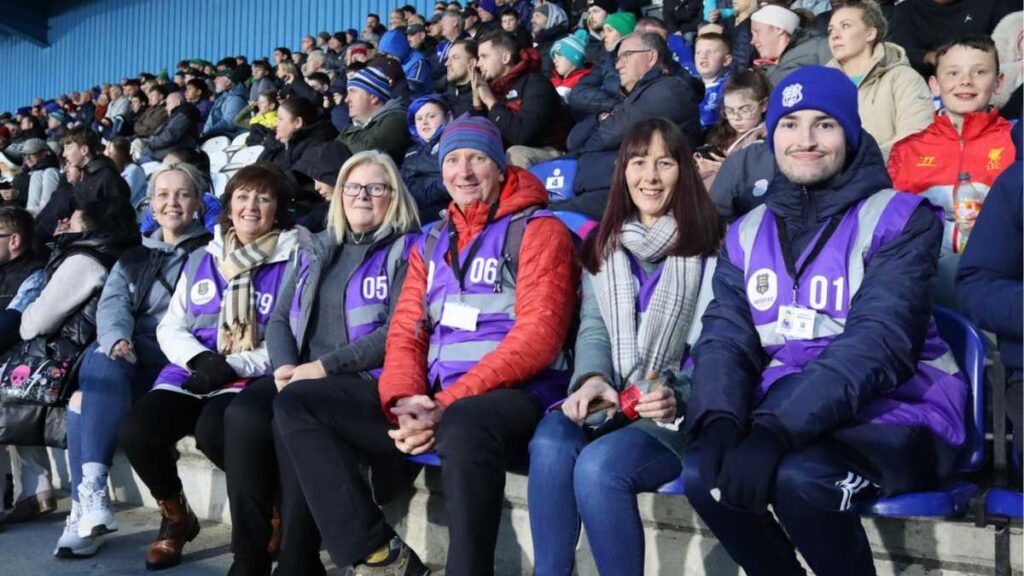
“As someone who has been involved in football from playing to coaching, to volunteering with this club, and now going full-time, the fact that the sport had barriers was alien to me.
“After my discussion with Tony and Sean [Tony’s son], I had to educate myself on autism and the challenges that it could bring on matchnights, and I spoke to parents who were honest and open about the challenges.
“It was absolutely trial and error. One thing I’ve learned is there is no point going to different groups and telling them this is what we could do; it’s me going to them and asking what could Waterford do for you?
“I thought the hardest thing was going to be getting the kids in the gate and to their seat, but what proved to be the hardest thing was actually keeping them there. A lot of them were leaving after 40 minutes, half-time was a big challenge; we’d have seven families on average every matchnight and we would lose 80 per cent of those during the game which I thought was a failure.
“Every parent said a quiet or a sensory room could help them stay. The club took a punt on it, and now most of the children stay the whole game because they have access to that when they get overwhelmed.
“I want the kids with the rest of the supporters watching the game in the stand – otherwise they might as well be at home – so if they need that facility, the ambassador will bring them in for around 10 minutes and it has been a game changer.”
Creating the sensory room was a big step, and there have been several other, arguably smaller changes but with just as big an impact on the match experience – from ordering tickets through to the full-time whistle.
“They book tickets through me and they collect them in the days leading up to the match in the club shop. They will receive a Waterford FC Community Guest lanyard which they wear on their way to the game so they are easily identifiable.
“They are met at outside the stadium gate by community ambassadors who wear purple bibs, and there is a lot of autism experience between them – either as parents of kids of autism, through siblings, or providing special needs assistance in schools.
“The community ambassadors bring them in through a separate entrance so there is no queueing or going through the turnstiles, and they walk them over to the far-side stand where they have allocated seats in the two front rows of block F.
“The reason they are in the two front rows is because they have easy access in and out – the children sometimes get up three, four, five times per game and the parents felt asking people to move was not ideal.
“The kids might have had to previously wear ear defenders because music blares out across the stadium. We changed the speaker out to see if that would help and it did to an extent, but didn’t solve the problem, so we installed dimmers for the volume so we can now take the volume down or switch it off in that area. They don’t wear ear defenders anymore and that’s their choice, not ours.
“And whether someone wants to go for a walk, or wants food, the ambassadors are there to provide assistance.”
The club’s autism-friendly initiatives have also spread to a Football Friends programme, after the parents informed Colin there was a lack of sporting activities orientated towards autistic children in the area.
“I’ve coached U18s before and had a preconceived view of what we could put in place, and I couldn’t have been further wrong.
“What we’ve come up with is ideal for them; we don’t put any expectations on the kids. If it’s an hour of social activity, that’s fine, if they want to play football then we’ll do that. It’s dictated by the kids.
“I was very naive about autism, but if you give those kids a chance, what you will get back is a hundred-fold. They each have their own personality, and they are absolutely fantastic people.”
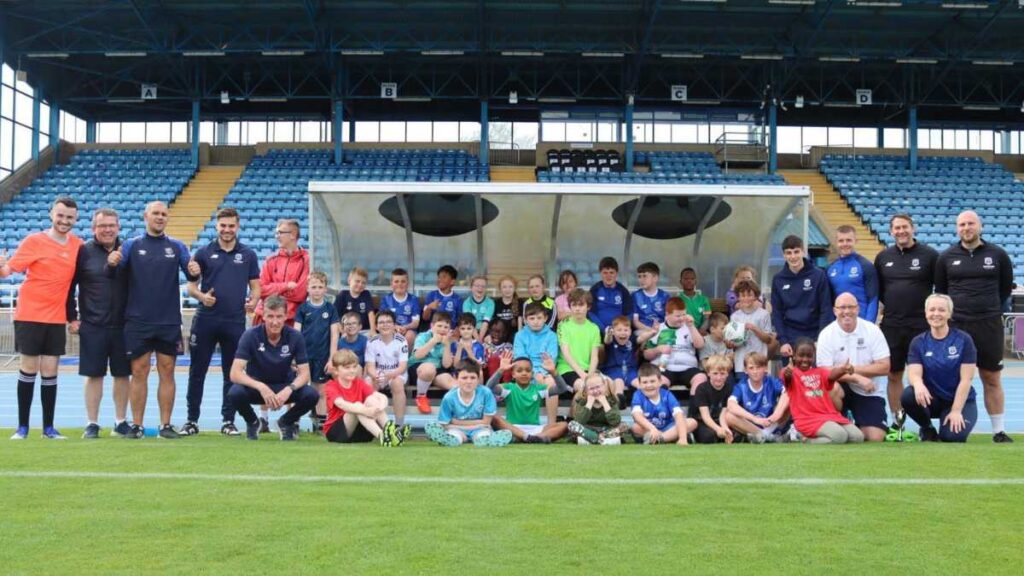
In November 2024, Colin went to Belgium to represent all those children, parents, volunteers, and club staff at the EFDN More Than Football Awards, delivering a presentation on the club’s journey to becoming more autism inclusive.
The event was a culmination of something Colin had received and earned, and received and earned again, during the previous 18 months: trust.
“The club put their trust in me. It took a long time for plans to come to fruition, and when we were ready to go, it all happened at once. It was a huge transition and the new owners of the club have been imperative in what we are now doing in the community.
“We were lucky to have parents who would bring their kids to matches when we didn’t have those problems solved. At each game they told us what the problems were and we went about resolving those with the staff in the stadium, and without their trust in me and the club, we would never have got to this stage.
“You get to know the parents and you get to know the kids, as the more time you spend with them, you naturally build bonds and friendships. They are an absolutely brilliant group of people and you want to help in any way you can to make something a bit better in their lives.
“I’m 53 years of age and this has been the best job in my life, by far.”

